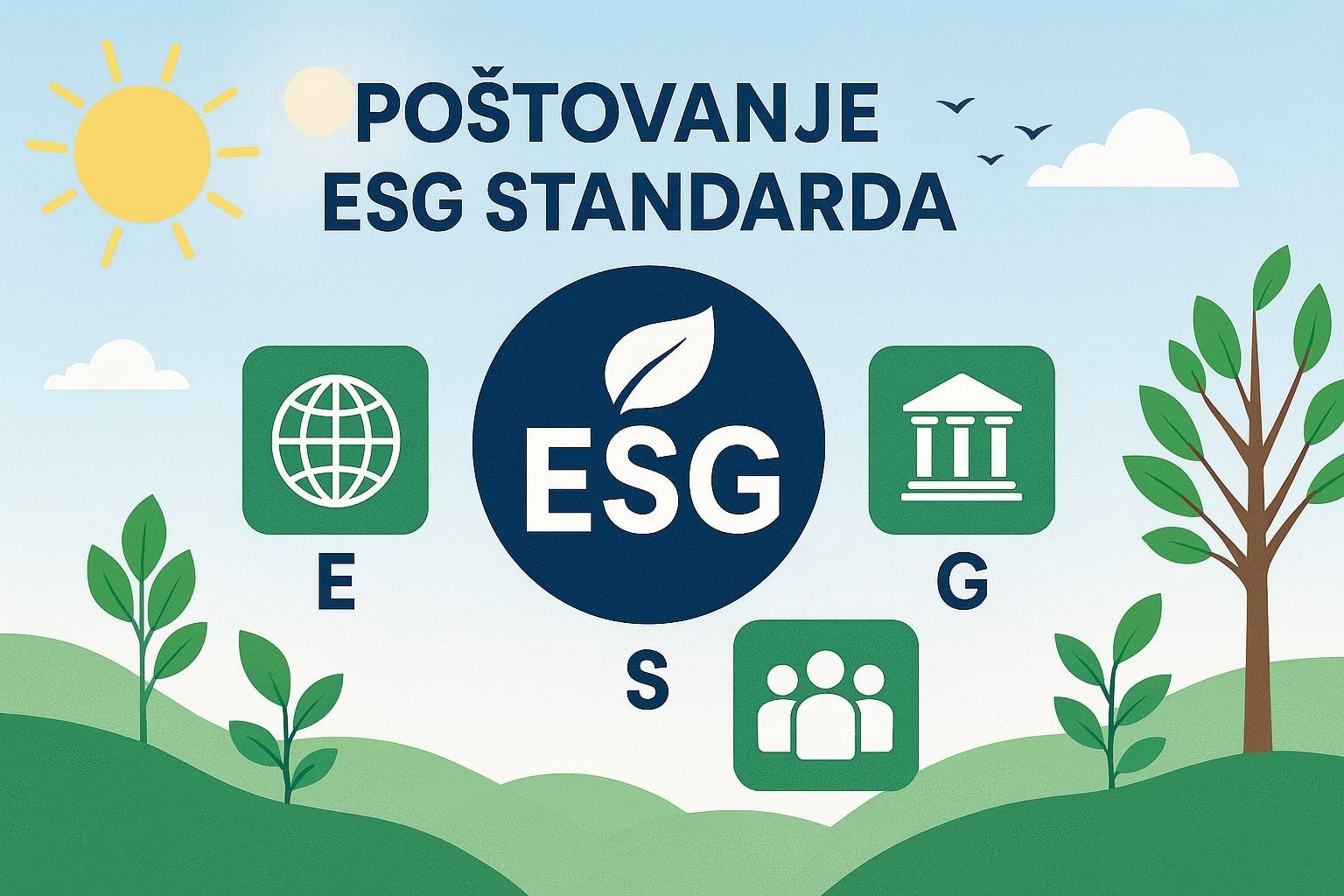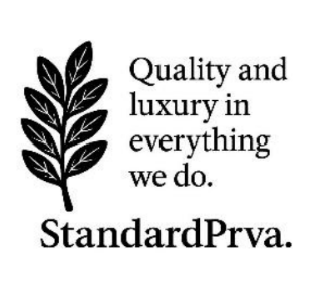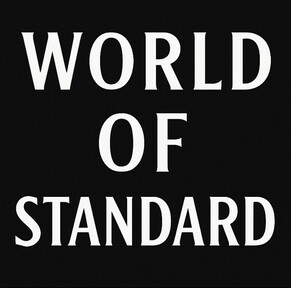Respecting ESG Standards: A New Obligation for Serious Companies
In the modern business environment, respecting ESG standards (Environmental, Social & Governance) is no longer a matter of choice nor a trend that will pass – it is a new, firm business norm. Companies that want to survive, attract capital, work with international partners and remain competitive must clearly show how they manage their impact on the environment, society, and corporate governance.
Within the Standard Prva group, more and more clients are asking for guidance: do they really need ESG, what exactly needs to be done, and how important this concept actually is for their finances, reputation, and long-term planning. Below is an analytical overview – practical, professional, and adapted to the business audience.
Why has ESG become crucial?
There are three main reasons why ESG is no longer just a formality:
- Regulatory pressure – The European Union is introducing strict reporting obligations (CSRD directive), and Bosnia & Herzegovina and Serbia, as markets that work with the EU, must follow these standards.
- Financial significance – banks and investors are increasingly conditioning financing with ESG policy. Projects without an ESG assessment are becoming risky and expensive.
- Reputational capital - modern consumers and partners will choose companies that respect sustainability, ethics, and responsibility.
In other words, ESG has become the new currency of trust on the market.
E (Environment): Responsibility toward the environment
Companies can no longer ignore the ecological impact of their operations. In practice this means:
- controlling energy consumption and introducing renewable energy sources,
- reducing waste and clear recycling policies,
- careful management of CO₂ emissions, especially for industries sensitive to regulations,
- environmental risk assessments in all major projects.
For banks and investors this is the first point they check – because environmental risks directly become financial risks.
S (Social): People as the foundation of sustainable growth
The social dimension of ESG shows how a company affects its employees, the local community, and the wider social structure. Companies that want to be relevant must have:
- regulated labor relations and clear worker protection policies,
- investment in employee development and young talent,
- respect for human rights and prohibition of discrimination,
- contribution to the local community through projects and initiatives.
Companies with a strong “S” profile have a lower risk of lawsuits, higher employee loyalty, and more stable operations.
G (Governance): Governance that builds trust
Corporate governance is often the most neglected, but frequently the decisive segment of ESG. Quality G includes:
- financial and decision-making transparency,
- a policy preventing conflicts of interest,
- established mechanisms of internal control and oversight,
- anti-corruption measures and a code of ethics,
- professionalization of management structures.
Investors particularly appreciate this segment, as it demonstrates the company’s stability and seriousness.
How to start? Standard Prva recommendations for 2026 and beyond
For companies that want to introduce ESG policies, the best approach is gradual but clear:
- Perform an ESG assessment and identify key risks and advantages.
- Establish internal policies (energy efficiency, labor rights, code of ethics).
- Introduce a monitoring system – even a simple one, but regular.
- Start with an annual ESG report, even in basic form.
- Communicate results – to investors, partners, and clients.
At Standard Prva we regularly follow global trends and help companies prepare policies and documentation aligned with the best practices of the EU and the region.
Conclusion: ESG is not a cost – it is an investment
Companies that adapt to ESG standards on time will have:
- easier access to capital,
- better relationships with banks,
- a stronger brand,
- reduced risks,
- more stable long-term operations.
ESG is the business model of the future – and those who adopt it today will be the leaders tomorrow.
If you want your company to take the first step, our team at Standard Prva is available for analysis, policy development, consulting, and preparation of ESG reports.




